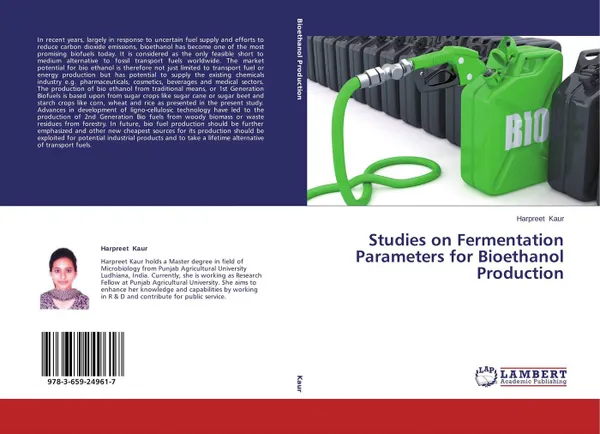Studies on Fermentation Parameters for Bioethanol Production
Автор: HARPREET KAUR
2014
124 страницы
Категория: Литература на иностранных языках
Язык: Английский
Тираж: 500
🔖 In recent years, largely in response to uncertain fuel supply and efforts to reduce carbon dioxide emissions, bioethanol has become one of the most promising biofuels today. It is considered as the only feasible short to medium alternative to fossil transport fuels worldwide. The market potential for bio ethanol is therefore not just limited to transport fuel or energy production but has potential to supply the existing chemicals industry e.g. pharmaceuticals, cosmetics, beverages and medical sectors. The production of bio ethanol from traditional means, or 1st Generation Biofuels is based upon from sugar crops like sugar cane or sugar beet and starch crops like corn, wheat and rice as presented in the present study. Advances in development of ligno-cellulosic technology have led to the production of 2nd Generation Bio fuels from woody biomass or waste residues from forestry. In future, bio fuel production should be further emphasized and other new cheapest sources for its production should be exploited for potential industrial products and to take a lifetime alternative of transport fuels.
Мнения
